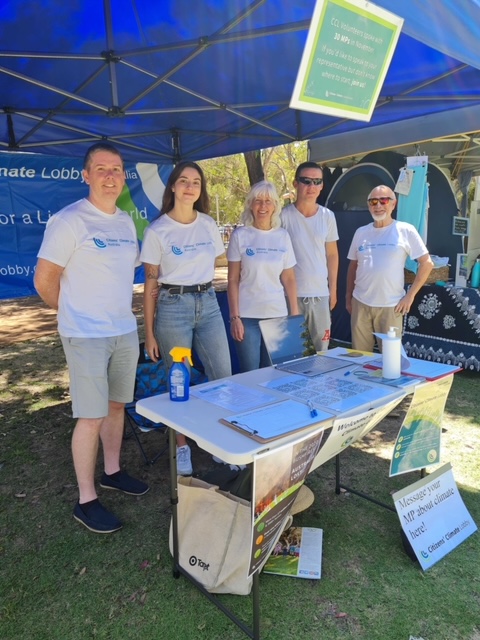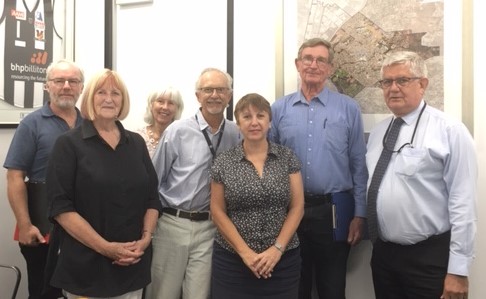Western Australia’s climate is getting hotter and drier. Catastrophic events like floods, droughts and bushfires are getting more frequent and more severe.
The possibility of climate change due to burning coal as fuel was first pointed out by Nobel prize-winning Swedish scientist Svante Arrhenius in 1896.
Now 125 years later, even the Morrison government is beginning to take notice.
Researchers at Ohio State University in the USA have found that putting a price on carbon is the cheapest, most efficient policy change governments can make to reduce the emissions that cause climate change.
They analysed the costs and effects that a variety of policy changes would have on reducing carbon dioxide emissions from electricity generation in Texas and found that adding a price, based on the cost of climate change, to carbon was the most effective.
“If the goal is reducing carbon dioxide in the atmosphere, what we found is that putting a price on carbon and then letting suppliers and consumers make their production and consumption choices accordingly is much more effective than other policies,” said Professor Ramteen Sioshansi, an integrated systems engineering professor.
The study was published recently in the journal Current Sustainable/Renewable Energy Reports.
Many people think government action on climate change is coming too little too late and our children and grandchildren may suffer the consequences. But not everyone is taking this lying down.
Joyce Erceg, Citizens’ Climate Lobby (CCL) regional coordinator in WA, said carbon tax has had a chequered career in Australia with vociferous opposition mainly based on misunderstanding of its purpose.
“CCL proposes a carbon fee. This is different to a tax as it is not collected by government and the proceeds are distributed to everyone as a dividend.”

CCL is a non-profit, non-partisan, grassroots advocacy and education organisation focused on accelerating solutions to climate change through democracy. It has a proposal that it hopes will be more acceptable to voters.
“CCL has fairly low visibility with around 3500 members Australia-wide but is starting to grow. We have branches in the East Metro and Southern Metro and are hoping to start a branch in the North Metro area.
“People started getting interested as they saw the threats of bushfire last year associated with climate change.”
She says Carbon Fee and Dividend is an efficient and transparent carbon pricing mechanism that drives greenhouse gas emissions reductions across most sectors of the economy.
Unlike a carbon tax the entire net revenue generated by the carbon price is returned directly to every citizen through monthly ‘dividend’ payments.
There are several benefits to this approach:
Investors, producers, consumers and governments are all given an incentive to increase energy efficiency and reduce their consumption of carbon. The fee encourages greater investment, research and development and implementation of clean energy projects.
The dividend protects lower and middle income families, maintains public support and gives consumers greater purchasing power, enabling all households to play their part in reducing climate change.
Carbon Fee and Dividend (CFD) would cause minimal disruption to the economy while giving a strong and positive signal to markets. A dividend instead of a tax would distribute costs across the economy and stimulate economic growth, while giving a strong and positive signal to markets.
A carbon fee would encourage new business opportunities to develop, produce, install and service innovative energy projects and create thousands of new jobs.
Ms Erceg says CCL is lobbying governments to act on climate change.
“We form electoral groups of volunteers who write to, meet and talk with politicians and others across the political spectrum.
“We are now talking to State politicians and local government. We plan to use their views to influence further up the political hierarchy.
“We also cooperate with groups with similar aims including Beyond Zero who are involved pressing for transitional jobs as the economy changes; Farmers for Climate Action and Doctors for the Environment.
“CCL can also provide speakers for other organisations on subjects like ‘why is it getting so hot’? And ‘opportunities to reduce our dependency on carbon’.”
Putting a price on carbon gives an economic signal to polluters. They can decide to discontinue their polluting activity, reduce emissions by decreasing their consumption of carbon or finding alternative low-carbon options, or continue polluting and pay the community costs of it, she said.
Find out more about CCL at www.ccl.org.au



































